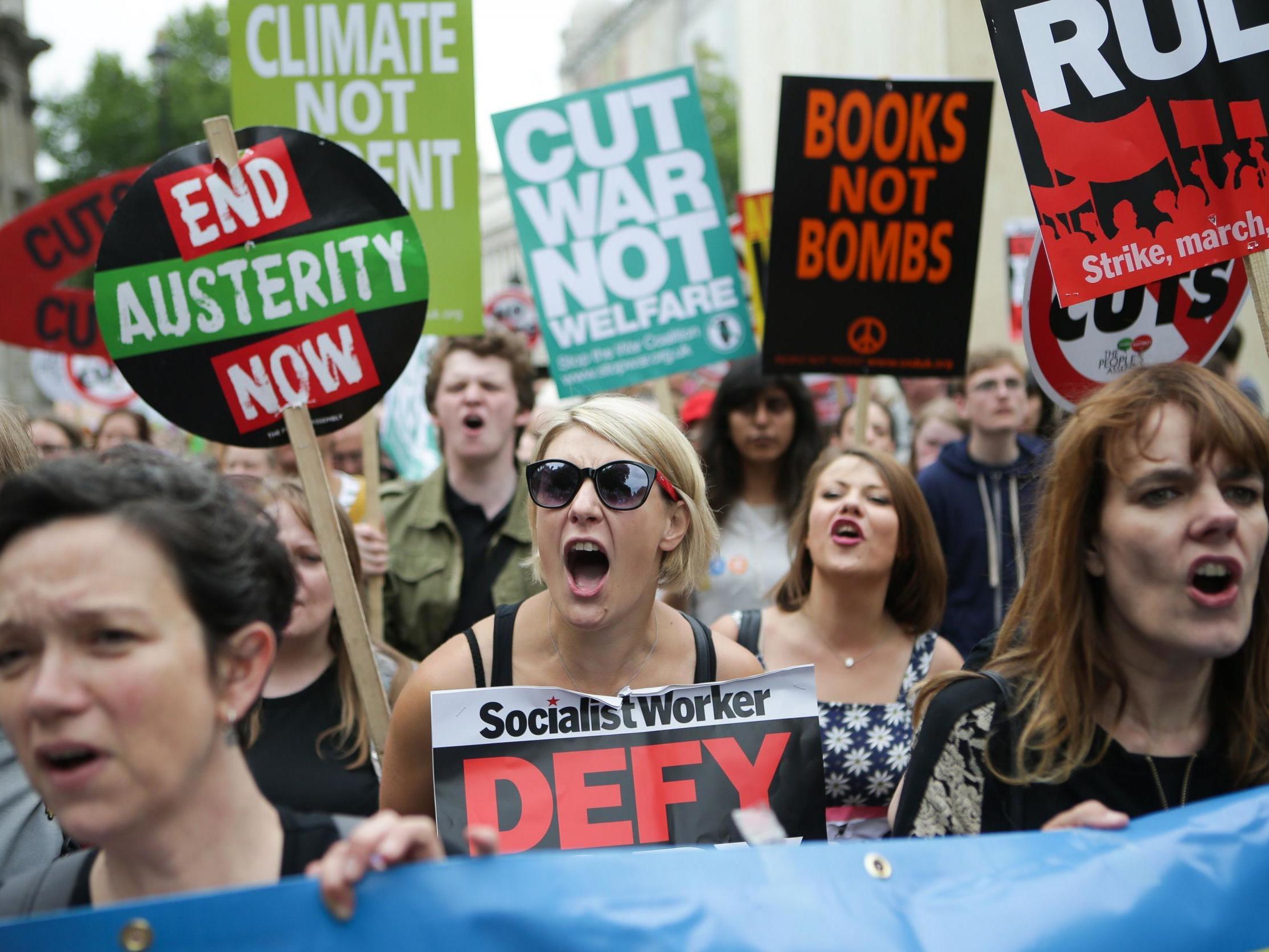Government has enough money to end austerity if it wants to, IFS report concludes
Think tank says chancellor has ‘headroom’ to find an extra £15 billion for public services
Your support helps us to tell the story
From reproductive rights to climate change to Big Tech, The Independent is on the ground when the story is developing. Whether it's investigating the financials of Elon Musk's pro-Trump PAC or producing our latest documentary, 'The A Word', which shines a light on the American women fighting for reproductive rights, we know how important it is to parse out the facts from the messaging.
At such a critical moment in US history, we need reporters on the ground. Your donation allows us to keep sending journalists to speak to both sides of the story.
The Independent is trusted by Americans across the entire political spectrum. And unlike many other quality news outlets, we choose not to lock Americans out of our reporting and analysis with paywalls. We believe quality journalism should be available to everyone, paid for by those who can afford it.
Your support makes all the difference.Favourable public finances have given Philip Hammond enough leeway to spend £15bn in this summer’s spending review to show austerity is “coming to an end”, a think tank has said.
The Institute for Fiscal Studies said the chancellor has room to find “a reasonable amount of extra cash” for the period 2020-23.
Delivering the IFS’s verdict on Wednesday’s Spring Statement, director Paul Johnson said public finance figures had “surprised on the upside”, with borrowing at its lowest level since 2001-02.
“If the chancellor uses his headroom to find an extra £15bn for public services, he could say with more conviction that austerity is coming to an end,” Mr Johnson added.
But the think tank said that economic improvements could still be knocked off course if the UK crashes out of the EU without a Brexit deal.
The government would have already been able to declare the end of austerity “rather more decisively” if not for Brexit, according to Mr Johnson.
“There is a consensus that the economy would have been about 2 per cent bigger had the Brexit vote not occurred,” he said.
“In those circumstances the deficit would have been smaller still and the fiscal room for manoeuvre greater. The end of austerity could already have been rather more decisively with us.”
The IFS warned that the chancellor’s Spring Statement deferred crucial spending decisions in areas such as social care, public service funding and benefits which will put him under pressure to raise taxes further down the line.
The Treasury said on Wednesday that the “headroom” built up by the chancellor could go towards government priorities such as keeping tax low, reducing debt, public service spending and capital investment, so long as it is not soaked up coping with a no-deal Brexit.
Mr Johnson said the chancellor could spend as much as an additional £15bn without breaching his promise to keep debt falling as a proportion of national income.
“Extra spending of that sort would, finally, allow the chancellor to say with rather more conviction that austerity really was coming to an end,” said the IFS director.
But he warned: “Of course if things go wrong with Brexit, or indeed for other reasons, then that headroom could be removed. Remember that the OBR [Office for Budget Responsibility] forecasts are all predicated on a fairly smooth transition, certainly not on crashing out of the EU without a deal. That would lead to lower growth and hence a fiscal cost.”

The IFS said there had been “no reprieve” announced for the millions of working-age families dependent on benefits.
“The fourth year of the benefit freeze is going ahead. 10 million families will have lost an average of £420 a year as a result of the freeze. Ignoring those only affected by the child benefit freeze, 7 million poorer families will have lost an average of £560 apiece.”
“Brexit isn’t the only thing that matters,” Mr Johnson concluded. “There are long-term challenges that can’t be ignored, and many of these are becoming rather more pressing.”
Additional reporting by Press Association

Join our commenting forum
Join thought-provoking conversations, follow other Independent readers and see their replies
Comments